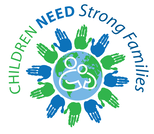|
According to Farrell and Khyllep's Freeing Congregational Mission, more than 9 million children in the world are supported by child sponsorship programs, to the tune of $3.29 million each year. As a funding model, it motivates consistent, regular donations through the idea of a relationship between the donor and a child in need. But are these programs really effective in improving the lives of children? The answer is a little complicated. A 2013 study of more than 10,000 children in six countries showed that sponsored children showed an increase of approximately 1 - 1.5 years more schooling than their non-sponsored peers, and secondary school completion was about 15% higher on average. However, it's difficult to say that this was a direct result of the child's enrollment in a sponsorship program. What if the critical variable for a given child's school success wasn't necessarily his enrollment in a sponsorship program, but was actually the tenacious drive of a mother to get her child access to the resources that such a program could provide, for example? Child sponsorship programs can also have a negative impact on the community in which they exist. A 2008 Sussex study found that there was "anxiety, jealousy and disappointment" among those families in the community who were not sponsored. According to Farrell and Khyllep, parents report that such programs can violate their agency to make decisions for their own children, and can create stress within the family when some children are sponsored and others are not. Connecting sponsors to an individual child creates this false sense that the child lives in isolation, and ignores the family that surrounds that child. When the number of children in a given family are limited - as they are with many child sponsorship programs -they can also create negative impacts on family unity, making other family members wonder why they don't have sponsors.
From 2016 - 2018, the CRC transitioned from an orphanage model to family-based care, because research has taught us that is what's best for children and families. This shift allowed the CRC program team to broaden their focus from trying to meet the needs of a single, individual child, to strengthening and empowering that child's entire family to move them toward self-sustainability. Doing so allowed the social workers on the CRC staff to recognize, honor and tap into the greatest resource for thriving in life that a child can have - caregivers and family members who love him or her. As Farrell says, "as mission leaders, partners and donors, we should be asking ourselves, how does our approach engage us in God's mission to care for all of His children by strengthening families, communities and all of those who care for children without undermining the role of mothers and fathers in a child's life?" The deep irony of child sponsorship is that these programs can actually distract donors from understanding the root causes of vulnerability. By focusing on feeding or educating a child, you're missing the chance to understand why children are going hungry and you're not getting the chance to become really engaged in programs designed to work with communities to strengthen families so they can care well for themselves without support. It is an undeniable FACT that child sponsorship programs have galvanized millions of people to set aside disinterest, apathy, and donor fatigue to get involved, to give - sometimes sacrificially - in order to help vulnerable children. Child sponsorship programs are good, but we can make our dedicated donor programs even better. How? By marrying this powerful fundraising and awareness raising power to what we know as our responsibility as an organization dedicated to helping children and families to get stronger and to thrive. The Child Reintegration Centre programs are working to strengthen families and release them so that they're strong and independent, and no longer need support. As a Family Empowerment Advocate, you're not just a sponsor, contributing funds that could be put toward access to medical care or education, you're investing in a program designed to build the capacity of an entire family to get stronger and become independent and self-sustaining. As an Advocate, you're investing in a program that gives the CRC the ability to help vulnerable children in ways that are consistent with how God cares for all of His children by addressing the root causes of their vulnerability - appropriately, respectfully, and by working through and with families.
0 Comments
Your comment will be posted after it is approved.
Leave a Reply. |
Follow us on social media
Archive
July 2024
Click the button to read heartfelt tributes to a beloved Bishop, co- founder of our mission!
Post
|
Helping Children Worldwide is a 501 (c) 3 nonprofit organization | 703-793-9521 | [email protected]
©2017 - 2021 Helping Children Worldwide
All donations in the United States are tax-deductible in full or part. | Donor and Privacy Policy
©2017 - 2021 Helping Children Worldwide
All donations in the United States are tax-deductible in full or part. | Donor and Privacy Policy






